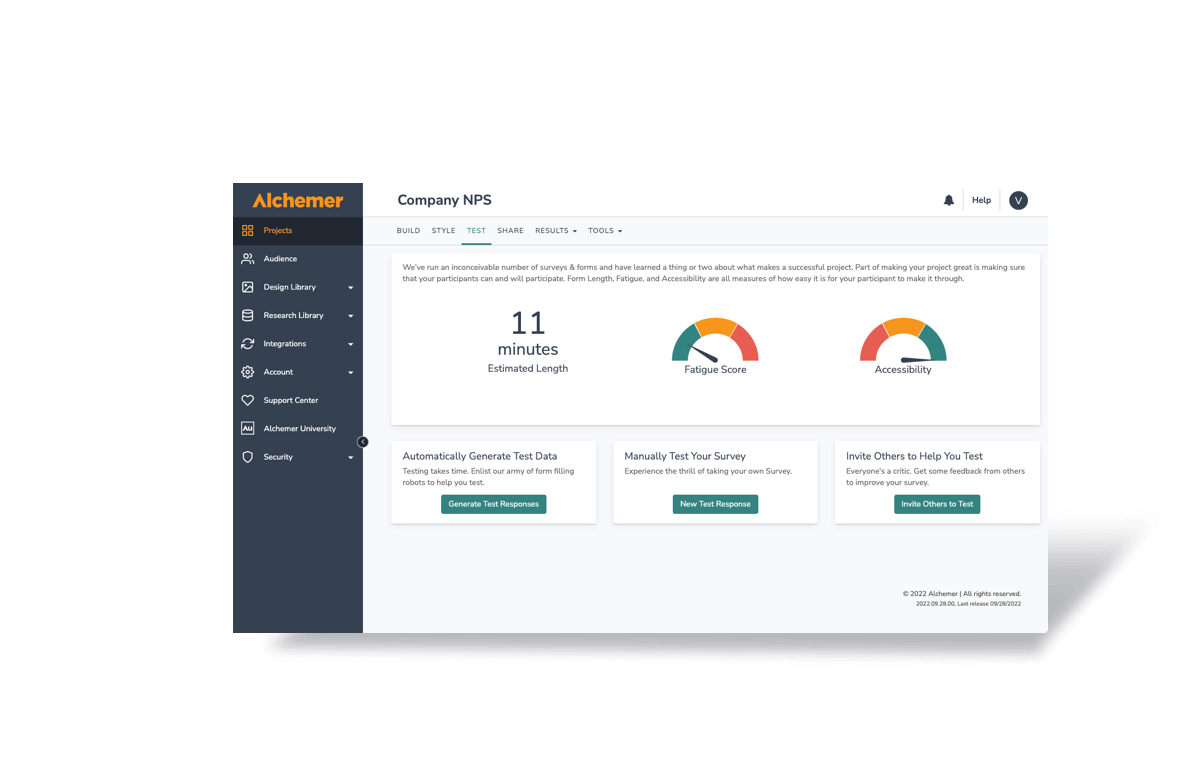One of the keystones of a successful marketing strategy is quality information. Understanding your brand and its customers can be the difference between a marketing flop and overwhelming success. But where do you gather this all-important information? How do you know what questions to ask and when?
There are studies on brand awareness, brand usage, brand perceptions, purchase intent, and more. The sheer variety of information sources can seem overwhelming.
Three often confused sources of crucial product data are brand awareness, brand recall, and brand perception studies. While all three provide valuable insights into your brand’s position among competitors, they yield very different information. Knowing the distinctions among these metrics can help you gather the right information at the right time. This will allow you to elevate your marketing strategy.
Brand Awareness
You might believe you understand how your target market feels about your product. However, until you ask them directly, you are leaving a lot to chance. Conduct a brand awareness survey at least once a year, and preferably once per quarter. These surveys track the overall recognition of your brand within your most desirable markets.
Most brand awareness studies focus on aided awareness. This metric measures the likelihood of a customer recognizing your brand or product among a selection of options. Aided awareness is critical for brand success.
Customers are more likely to use a brand that is familiar and easily recognizable. Ultimately, this recognition contributes to the brand’s overall success.
For example, consider a customer in the beauty aisle searching for a new shampoo. A brand with high levels of awareness and familiarity enjoys a significant edge over competitors. This advantage becomes especially important when customers face choices on the shelves.
Brand awareness metrics, including brand awareness scores, are essential indicators of your marketing effectiveness. By tracking these scores over time, you can evaluate the effectiveness of your marketing strategies. This helps you determine whether you are successfully elevating your brand in the minds of consumers.
The Importance of Brand Recall
When marketers conduct a brand awareness study, they often measure brand recall as well. However, it’s essential to distinguish between these two metrics. Brand recall, often referred to as “top-of-mind awareness,” measures how likely a customer is to remember your brand. This happens when you ask them an unaided question—essentially, without any prompting.
This measure indicates how strongly a customer associates your brand with a particular product category. Free association is vital for any marketing campaign. The more likely a person is to remember your brand absent prompting, the more likely they are to discuss, recommend, and choose your brand during a purchase decision.
For example, imagine a consumer who names a soft drink. If Coca-Cola immediately comes to mind, this indicates a high level of brand recall. Conversely, if the respondent hesitates or names a less well-known brand, this signifies lower brand recall.
Brand Perception: What Customers Feel
Unlike brand awareness and recall, brand perception encompasses how customers feel about your brand. A comprehensive brand perception study will provide insight into how customers view your brand compared to competitors. It evaluates which attributes of your brand or product customers consider most and least important. Additionally, it assesses the overall feelings that interactions with your brand evoke.
Brand perception takes into account various factors, including customer service, product quality, value, features, and the sales process. If customers perceive your brand positively, they are much more likely to engage with it continually. Positive brand perception can transform customers into brand evangelists.
If customers view your brand negatively, they may choose competitors or warn others against it. A quality brand perception study can reveal why customers choose or do not choose your brand. It can also uncover what they are saying about you on social media or in face-to-face conversations.
Choosing the Right Metric
Maintaining strong brand awareness and top-of-mind recall is obviously a priority for marketers. These metrics are particularly important when designing campaigns. A lagging brand awareness score indicates that it’s time to ramp up your advertising and marketing efforts.
For newer companies, a combined awareness and recall survey can be very beneficial. It helps identify the strongest existing competitors, enabling you to plan your strategies accordingly.
Choosing Between Brand Awareness and Recall
A great time to conduct a brand awareness study is before launching a new product. High brand awareness is crucial for generating anticipation around your latest offering. Consider the customer decision-making process when choosing which metric to focus on.
If consumers are likely to encounter many options in a physical store, brand recognition will play a key role. Customers may see several brands side by side, making it essential that your brand stands out.
If your product is a destination, like a popular restaurant, brand recall becomes a more important metric. When a customer is deciding which restaurant to visit, their ability to remember your brand becomes critical. This is especially true if they are not immediately in front of your establishment.
Supporting Business Decisions with Brand Perception Data
Brand perception can inform various business decisions, particularly when allocating resources to implement your strategy. Understanding your brand perception is essential when determining which features to develop.
By revealing which features customers value most, this data provides empirical support for your marketing priorities. Moreover, it can uncover weaknesses in your product. A brand perception study may reveal that customers view your product positively, but they find your customer service lacking. In this case, you should dedicate more resources to improving service quality.
Impacting Brand Perception
Brand perception can change over time, but you have substantial control over it. Understanding your brand perception is crucial. It allows you to see how it evolves in response to your initiatives. This insight helps you evaluate the effectiveness of your marketing efforts.
Is your latest campaign positively influencing customer opinions? Or is it having a negative effect? A solid grasp of your brand perception can help you avoid misallocating resources.
This understanding guides you away from ineffective initiatives. Instead, it directs you toward more valuable paths. In other words, brand perception can be indispensable for maintaining an agile marketing approach.
The Relationship Between Brand Metrics
TTo achieve a complete picture of your brand’s position, regularly assess your brand awareness scores. Additionally, evaluate brand recall and perception scores. This consistent assessment will provide valuable insights into your brand’s standing. These metrics are interdependent, affecting one another and shaping your customer’s relationship with your brand.
Customers are less likely to choose a brand with low awareness initially, which means they will also be less likely to recall it later. This can have a cascading effect on your overall brand perception.
In an ideal scenario, high brand awareness leads to significant brand recall. This strong recall fosters a positive perception of your brand. Each element plays a crucial role in enhancing your overall brand image. This dynamic can ultimately result in loyal customers and advocates for your brand.
Brand Recall vs. Brand Recognition
When discussing brand recall, it’s important to understand how it differs from brand recognition. Brand recall measures a customer’s ability to remember a brand without any prompts. In contrast, brand recognition assesses whether customers can identify a brand when given cues or options.
Both metrics are essential for understanding customer awareness. For example, if customers see a logo and recognize it as yours, that’s brand recognition.
Brand recall vs. brand recognition is a critical distinction that can inform your marketing strategies. Strong brand recall usually indicates high brand equity, which can lead to increased sales and customer loyalty.
Brand Recognition vs. Brand Awareness
Similarly, brand recognition vs. brand awareness reflects another crucial distinction. Brand awareness refers to the overall understanding of whether customers know about your brand’s existence. On the other hand, brand recognition involves a customer’s ability to identify your brand when presented with other options. Both aspects are crucial for assessing a brand’s market presence.
High levels of brand awareness are essential for establishing a presence in the marketplace. However, without brand recognition, even the most well-known brands may struggle to convert awareness into sales.
Measuring Brand Recall: Key Methods
Understanding how to measure brand recall effectively is essential for any marketer. Here are some common methods:
- Surveys: Conducting a brand recall survey is one of the most straightforward ways to gather data. You can assess participants’ brand recall by asking them open-ended questions about specific categories. This approach allows you to gauge their ability to remember your brand without any prompts. It provides valuable insights into their unaided brand awareness.
- Focus Groups: Engaging with focus groups allows for in-depth conversations about brand perception and recall. These discussions can reveal insights into how consumers associate your brand with certain attributes.
- Market Research: Analyzing existing market research can provide additional context about brand recall in your industry. You can compare your performance against competitors to identify strengths and weaknesses.
- Social Listening: Monitoring social media and online conversations can give you real-time feedback on brand recall. Tracking tools that monitor mentions and sentiment can highlight how often customers discuss and perceive your brand.
- Brand Awareness Metrics: Utilizing various brand awareness metrics can provide valuable insights into your brand’s performance. For example, brand awareness scores specifically offer information about brand recall. Analyzing these metrics helps you understand how well consumers recognize and remember your brand. If your brand is well-known, it’s likely that recall will be strong as well.
Conclusion: A Comprehensive Approach
In conclusion, brand awareness, recall, and perception are critical metrics that every marketer should understand. While they provide different insights, all these metrics connect and can significantly influence your marketing strategy.
Understanding the nuances of brand recall vs. brand recognition, brand recognition vs. brand awareness, and how to measure these metrics can help you refine your approach. Regularly conducting brand awareness studies and brand perception studies will provide you with the data needed to navigate the competitive landscape effectively.
By combining insights from brand awareness, recall, and perception, you can develop a comprehensive marketing strategy. This strategy will help you cultivate long-term customer loyalty. Ultimately, these insights will contribute to your brand’s overall success.
If you’re not achieving high scores across these metrics, conducting the right studies can be beneficial. These studies will help you identify roadblocks in your current strategy. They will also guide you toward a more effective marketing approach.
Quality information is essential for various business endeavors. Whether you’re launching a new product, entering a new market, or refining your existing strategies, having accurate data can significantly impact your success. Understanding brand awareness, recall, and perception provides valuable insights.
You cannot underestimate the power of this information. Leverage these insights to enhance your marketing efforts and ensure your brand stands out in today’s competitive landscape.




